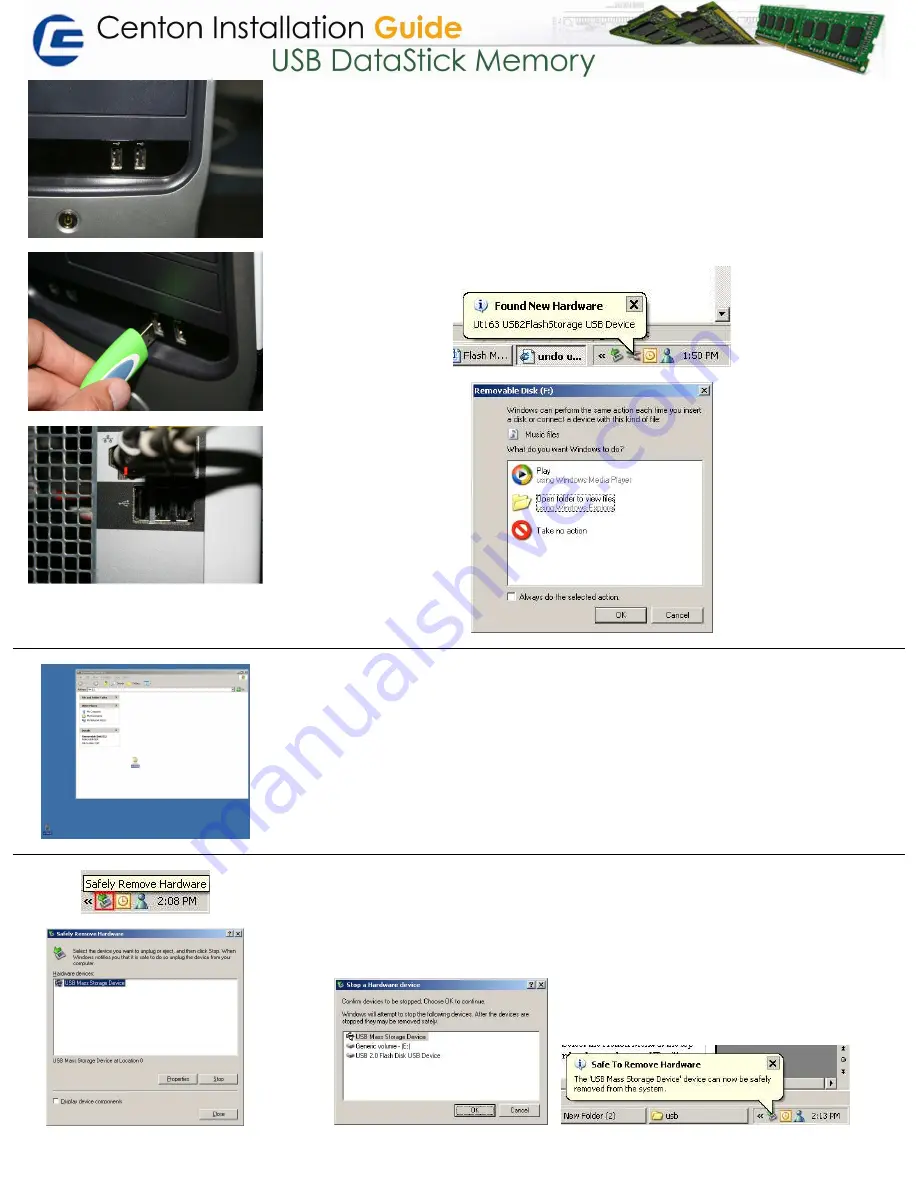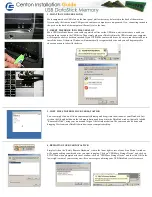
1. LOCATING YOUR USB SLOT(S)
Most computers have USB slots on the front panel, while others may be located in the back of the machine.
Occasionally, the front/external USB ports on some new computers are un-powered. If so, connecting instead to
the ports on the back of the computer will usually solve the issue.
2. INSERT THE DRIVE INTO THE USB SLOT
Most USB DataSticks have a removable cap which will reveal the USB drive, while others have a notch you
must push up to expose the USB drive. Then simply plug your DataStick into the USB slot and your computer
will recognize a device has been inserted. If your USB drive comes with drives, be sure to run the install disc to
install the drives. Otherwise Windows will automatically recognize the device and you will be prompted to
choose an action to take with the drive.
3. COPY FILES TO/FROM YOUR USB DATASTICK
You can simply click on a file on your computer/desktop and drag it into the window of your DataStick. Just
click on the file and hold down the left mouse button and drag it into the DataStick window (typically labeled
“Removable Disk”) using your mouse and let go of the left mouse button. The same can also be done with
dragging files from your DataStick window to your computer/desktop.
4. REMOVING YOUR USB DATASTICK
Simply click on the “Safely Remove Hardware” icon in the lower right corner of your Start Menu. A window
will open up asking you which device you want to unplug. Click on “USB Mass Storage Device” and click on
STOP. Then when prompted at the next window, click on “USB Mass Storage Device” and the click OK. In the
lower right corner of your screen you will see a message confirming your USB DataStick is safe to remove.



















